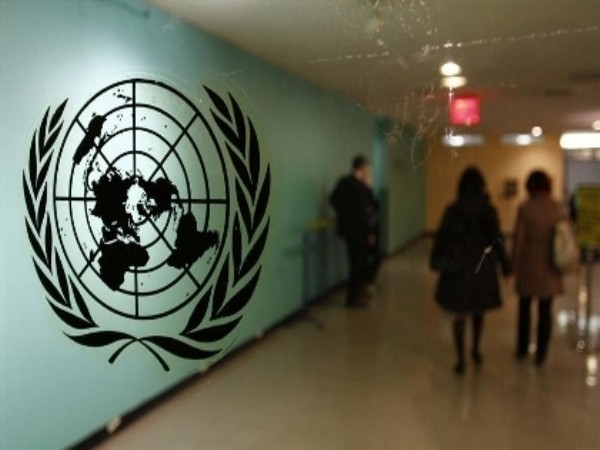60 years in, UN peacekeepers vital for Cyprus divide
Mar 04, 2024
Nicosia [Cyprus], March 4: In the heart of Nicosia's walled Old City, two UN peacekeepers unlock a padlocked door and step back five decades. They are entering the buffer zone that separates Greek Cypriots from Turkish Cypriots, and thousands of troops, on the divided island.
Like countless soldiers before them, the blue berets clambered over rooftops, past drying laundry lines, before walking along crumbling streets and through abandoned flats and businesses caked in thick layers of dust. "When you first get here it's really quite surreal, obviously it's not something that most people will ever really experience," Sapper Michael Clasper, a British peacekeeper from 71 Engineer Regiment, told AFP.
This year marks a triple anniversary for the Mediterranean island. It's 60 years since the arrival of the blue berets, 50 since an Athens-backed coup aimed at uniting Cyprus with Greece triggered a Turkish invasion that divided the island, and 20 since a referendum saw Greek Cypriots reject a UN reunification plan.
The appointment of a new UN envoy last month has sparked a flicker of hope for a new push for a settlement, but with six decades of failed negotiations behind it, the UN faces questions of how much longer it should stay.
"You've got a peacekeeping force on a holiday island... which is a really bizarre disconnect," said James Ker-Lindsay, a visiting professor at the London School of Economics and a Cyprus expert. "But that also raises questions about UNFICYP and its long-term mandate," he said, using the acronym for the United Nations Peacekeeping Force in Cyprus.
The UN is fully aware how long it has been here. "We always intend to come, fulfil the peacekeeping task at hand and leave," said UNFICYP spokesman Aleem Siddique. "The fact that we're still here, 60 years later, highlights the fact that we still need a solution to the Cyprus problem."
Intercommunal violence
Cyprus, which has a large Greek Cypriot majority and a sizable Turkish Cypriot minority, gained an uneasy independence from Britain in 1960 under terms that forbade partition and union with Greece or Turkey.
Yet the new republic's delicately crafted constitution buckled under the strain of inter-communal tensions and in December 1963 the dispute exploded into deadly violence. Turkish Cypriots withdrew into enclaves and Nicosia, the capital, was divided along what was dubbed the Green Line.
British troops had deployed quickly from their bases on the island to try to restore peace, but London was uneasy about both the costs and the implications of making it a long-term mission. "Peacekeeping was a really new thing at the time," said Ker-Lindsay. With the Cold War at its height, there were strong US efforts to make it a NATO mission, but the Cypriot president appealed to the Soviet Union and the idea was dropped."
Eventually, in March 1964, UNFICYP was created and has been in operation ever since, with Britain an ever-present contributor. The Turkish invasion of 1974 and its aftermath put an end to the enclaves and divided Cyprus in two, with the Turkish Cypriot north unilaterally declaring independence nine years later in a move recognized only by Ankara.
The buffer zone now stretches the full length of the island, 180 kilometers (110 miles) from west to east. Cyprus has, for the most part, remained peaceful since the Turkish invasion, but it would be a mistake to think that the buffer zone is anything other than tense.
The role of soldiers on patrol is to spot the slightest unauthorized alteration, even a new padlock, and report it up the chain, so that the UN can step in quickly and maintain the status quo. "The attention to detail is something you really need to focus on when you're out here," said Clasper. Frequent requests by former residents to retrieve their property are rejected, because the UN cannot allow the status quo to change.
Thousands of incidents
The buffer zone sees thousands of infringements each year. The UN says the most common are unauthorized civilian crossings, while there is also plenty of criminality, including illegal hunting and the smuggling of everything from asparagus to people.
There can also be serious confrontations, like one in August over the construction by Turkish Cypriots of a road in the buffer zone to the mixed village of Pyla, which led to four peacekeepers being injured. "It's easy for small incidents to explode into international ones, and we saw that recently with the dispute in Pyla," Siddique said.
The longevity of the mission and the apparently slim hopes of a resolution - the last UN-backed talks collapsed in 2017 - have led to doubts about its continuing efficacy.
Under the Donald Trump administration, there was US pressure to review the UN's peacekeeping missions and "Cyprus was definitely in the firing line", Ker-Lindsay said. He said it was saved in part because "if things really kick off in Cyprus, it will draw in two NATO allies", in the form of Greece and Turkey.
Since 1974, Sector 2 of the buffer zone, which covers Nicosia, has been headquartered in the Ledra Palace Hotel, once among the most glamorous in Cyprus and now a symbol of its division. After five decades with only minimal upkeep, it is no longer fit for human habitation and in the grounds of the hotel prefab buildings are being put up to house UNFICYP.
It's a similar scene all along the buffer zone, but it's not just the physical disintegration that troubles the UN, the status quo is under threat, too. UNFICYP can "hold the ground", said Siddique, but "the (UN) secretary-general has made clear the status quo is changing, is being challenged by both sides. "So we hope that this underlines the importance of returning to the negotiating table and securing a lasting settlement that will pave the way for the exit of the peacekeeping force". In the meantime, the UN is "absolutely necessary", Ker-Lindsay said. "I don't think it's really been factored in by society at large how precarious the situation is." - AFP
Source: Kuwait Times








